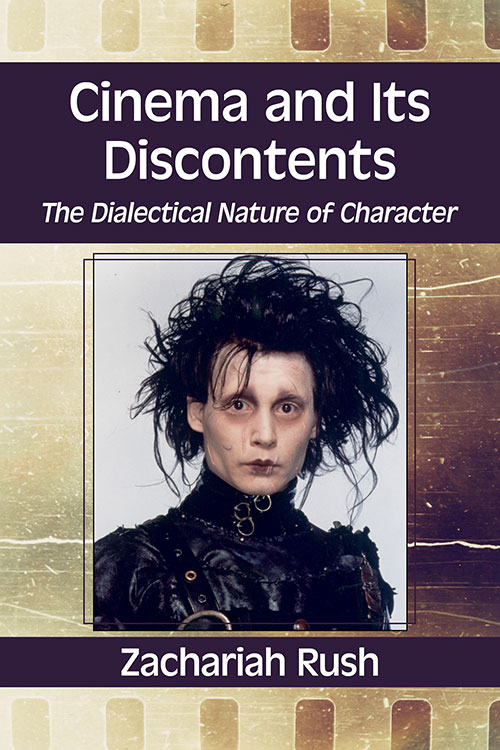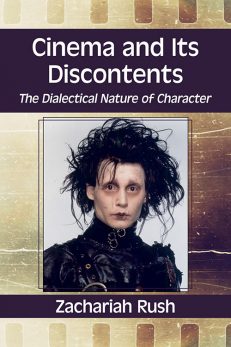Cinema and Its Discontents
The Dialectical Nature of Character
Original price was: $39.95.$31.99Current price is: $31.99.
In stock
About the Book
The ultimate aim of drama is to expose the soul of Character. Dramatists achieve this objective by employing a specific type of conflict known as dialectic, a concept woven throughout Western thinking and—from Homer to 21st century cinema—the basis of all dramatic characters. This study details the history of dialectical thought from Plato to Jung before turning its focus to the development of character in a century of filmmaking. From Chaplin’s Tramp to Taxi Driver’s Travis Bickle, it examines more than two dozen cinematic characters governed by dialectic—torn between life and death, opposing desires, moralities and wills, their sense of self threatened by others.
About the Author(s)
Bibliographic Details
Zachariah Rush
Format: softcover (6 x 9)
Pages: 212
Bibliographic Info: filmography, notes, bibliography, index
Copyright Date: 2016
pISBN: 978-0-7864-7538-4
eISBN: 978-1-4766-2506-5
Imprint: McFarland
Table of Contents
Acknowledgments ix
Preface 1
Introduction 3
Part One: The Dialectic 9
1.1 An Abbreviated History of Dialectic 11
1.2 Dialectic in principio 18
1.3 Speculative Dialectic 24
1.4 Platonic Dialectic 34
1.5 Early Christian Dialectic 40
1.6 Gnostic Dialectic 44
1.7 Patristic Dialectic 48
1.8 Augustinian Dialectic 55
1.9 Cartesian Dialectic 59
1.10 Pascalian Dialectic 62
1.11 Kantian Dialectic 65
1.12 Hegelian Dialectic 67
1.13 Marxian/Engelian Dialectic 71
1.14 Nietzschean Dialectic 75
1.15 Freudian Dialectic 77
1.16 Twentieth Century Dialectic 80
Part Two: Of Character 87
2.1 Introduction to Character: The Dialectic of Ethos 89
2.2 Gypsies, Tramps; Tramps and Thieves 95
2.3 Aristos, Scholars and Swans 101
2.4 Freaks, Tycoons and Contenders 109
2.5 Vaudevilleans, Hollywoodians and Magicians 120
2.6 April Lovers, Chanteuses and Writers 129
2.7 Ascetics, Asses and Alters 137
2.8 Politicos, Cabbies and Jedis 146
2.9 Arias and Angels 154
2.10 Edward and Max 160
2.11 Lions, Lightyears and Llamas 165
2.12 Male Models, Machinists and Matrimony 173
Conclusion: Towards a Cinema of Agony 180
Filmography 185
Chapter Notes 189
Bibliography 195
Index 197





